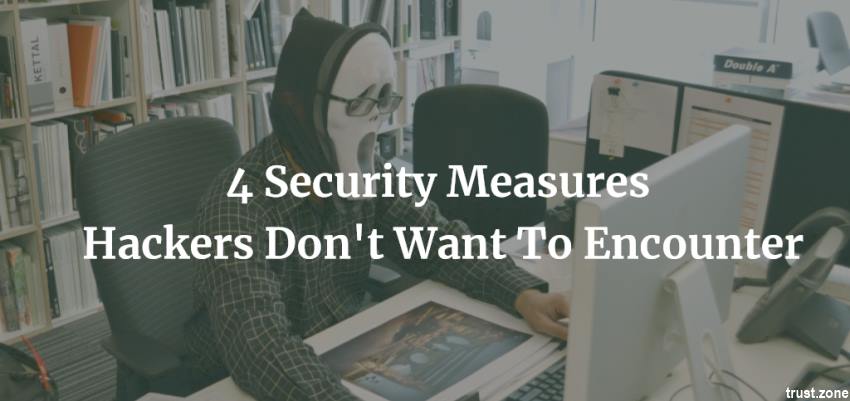Hackers have been all over the news lately, whether it’s a major hacker collective, a lone wolf hacker, or some “script kiddies” just hacking for the thrill of it, hackers seem to be hitting us from all angles.
When you connect to the Internet, you place yourself and your computer in harm's way. The Internet is a veritable cyber battlefield where war is being waged all the time. You might be just going about your business playing games, messing around on Facebook, or perhaps doing online banking when suddenly, you get caught in the line of fire and become a target.
Are there any defenses against the savvy hacker or even the amateur one? What's a hacker’s worst fear in terms of what one of their targets might have in place to try and prevent them from breaking in?
Let’s look at several things that hackers hate to see a target have in place as security measures:

Encryption can be a real turn-off for hackers, especially when it’s used as part of a VPN that can be used to protect all the traffic going in and out of your network. VPNs, once only used by rich corporate-types, are now available to the masses via personal VPN services such as Trust.Zone and others.
For around the price of a decent cup of coffee, you can purchase a VPN service that can provide both a new IP address to protect your anonymity, as well as strong encryption to help prevent hackers from eavesdropping on your network traffic.
A VPN can be one of the strongest layers of defense in your total defense-in-depth protection strategy.
While some wireless encryption such as WEP is easily hackable, WPA2 wireless encryption is a bit more robust, and, if implemented correctly, should provide decent protection against wireless hacking attempts.
A strong and unique wireless network name, not commonly found in the list of the most common network names, combined with a very strong pre-shared Key (wireless network password), can help strengthen your network’s potential for not getting hacked.
Don't forget to use a VPN to stay safe on public Wi-Fi because hackers may set up FREE Wi-Fi hotspots to steal your private data.
If you want to protect the data on your entire computer from being accessed by a hacker who has stolen it, or if you just want to protect important files from being seen by someone who happens to gain access to your computer, consider installing and using a whole disk encryption or at least volume or file disk encryption. There are many products to accomplish this task including open source tools such as TrueCrypt (discontinued), VeraCrypt, Bitlocker (Windows OS), FileVault (Mac OS X), and other.
Hackers may trick you into installing malicious or ransomware software. Some of this malware may evade your primary antivirus / antimalware solution. As with doctors, sometimes it's advisable to get a second opinion. Second Opinion Malware Scanners provide just that, a second look at your files for potential threats.
Second Opinion Scanners should complement your existing antivirus solution and shouldn't cause it to throw off false positives.
Autor's Bio:
Rebecca Carter is one of the essay writers on the research paper writing service UKessays. Besides, she is fond of traveling. In this case, she has visited a lot of countries all around the world. It should be noted that photography is her other passion. Some years ago she was providing some bloggers with wonderful pictures.